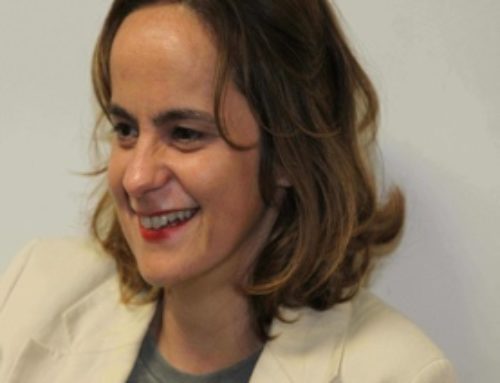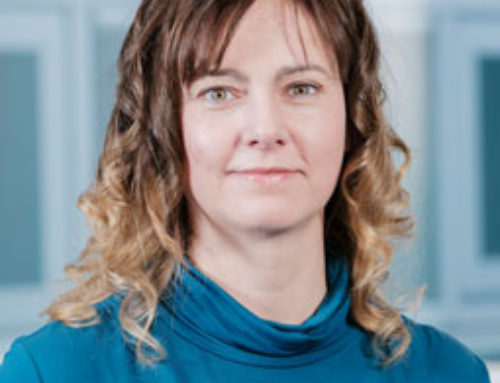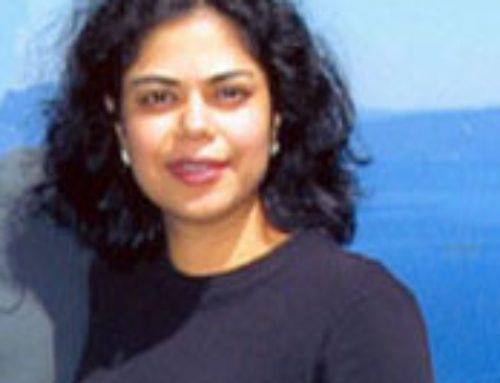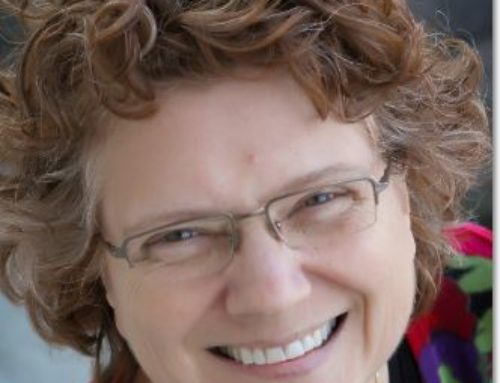HETL Note: We are pleased to present the first feature article to be published in the 2013 regular issue of International HETL Review (IHR). “Internationalizing the Curriculum through International Development Projects” is written in essay style by a team of authors based at the University of Minnesota. The article offers a thoughtful discussion on issues related to developing an international curriculum, fostering gender equality through education, and adopting appropriate approaches in these areas. The authors reflect on key themes and share the lessons learned. You may submit your own article on the topic or you may submit a “letter to the editor” of less than 500 words (see the Submissions page on this portal for submission requirements).
Author Bios:
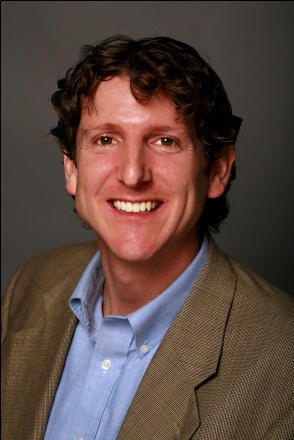 Dr. Christopher Johnstone is Director of International Initiatives and Relations and adjunct faculty member in the Department of Organizational Leadership, Policy, and Development at the College of Education and Human Development of the University of Minnesota. His research interests include internationalization of higher education and global initiatives on inclusive education aimed at reducing marginalization of children. He teaches courses in the university’s Comparative and International Development Education and Masters in Development Practice programmes. Contact email: [email protected]
Dr. Christopher Johnstone is Director of International Initiatives and Relations and adjunct faculty member in the Department of Organizational Leadership, Policy, and Development at the College of Education and Human Development of the University of Minnesota. His research interests include internationalization of higher education and global initiatives on inclusive education aimed at reducing marginalization of children. He teaches courses in the university’s Comparative and International Development Education and Masters in Development Practice programmes. Contact email: [email protected]
 Dr. Joan DeJaeghere is Associate Professor of comparative and international development education in the Department of Organizational Leadership, Policy and Development at the University of Minnesota. She previously held professional positions in international education, working with international students in US universities. Her current scholarship examines the intersections of gender, ethnicity and citizen status and how they materialize as inequalities in education, drawing on scholars working within critical feminism, critical pedagogy and globalization. Contact email: [email protected]
Dr. Joan DeJaeghere is Associate Professor of comparative and international development education in the Department of Organizational Leadership, Policy and Development at the University of Minnesota. She previously held professional positions in international education, working with international students in US universities. Her current scholarship examines the intersections of gender, ethnicity and citizen status and how they materialize as inequalities in education, drawing on scholars working within critical feminism, critical pedagogy and globalization. Contact email: [email protected]
 Ms. Kate S. McCleary is Director of International Programs at Washington College and a doctoral candidate in comparative and international development education at the University of Minnesota. Kate’s research interests focus on gender and education, and on social justice and equity issues that youth confront in the U.S. and in Central America. She has been the recipient of fellowships from the Fulbright Foundation, CARE USA, and Save the Children. Contact email: [email protected]
Ms. Kate S. McCleary is Director of International Programs at Washington College and a doctoral candidate in comparative and international development education at the University of Minnesota. Kate’s research interests focus on gender and education, and on social justice and equity issues that youth confront in the U.S. and in Central America. She has been the recipient of fellowships from the Fulbright Foundation, CARE USA, and Save the Children. Contact email: [email protected]
Krassie Petrova and Patrick Blessinger
~~~~~~~~~~~~~~~~~~~~~~~~~~~
Internationalizing the Curriculum through International Development Projects: A Case Study on Reflexivity, Collaboration, and Experiential Learning
Christopher Johnstone, Joan DeJaeghere, and Kate McCleary
University of Minnesota, USA
Abstract
This article, written in first person narrative, by three authors presents a reflective essay that focuses on internationalization of the curriculum through leveraging experiences in an international development project and course. The authors, two faculty and a doctoral student, reflect on elements of pedagogy, power, and privilege as they designed, taught, and completed a course that paralleled the activities of an eight-country study of girls’ education. Reflexivity, collaboration, and experiential learning, particularly informed by feminist pedagogies, were viewed as essential elements in constructing the course. Lessons learned from the teaching and learning process are shared by both instructors and a student.
Keywords: Internationalization, international education, graduate education, feminist pedagogy
Introduction
This article is a collection of reflections on an international education course that is focused on a development project about girls’ education, and the educational and collaborative outcomes for graduate students, faculty, and the project partner organization The course linked international education and development theory with practice through regular trips to the sites in eight different countries over a three year period. The scope of the project, along with the multiple field sites provided opportunities for faculty and students alike to work with local staff, government officials, and participants of the non-governmental organization project. This article chronicles and describes (1) the lessons learned from integrating a graduate-level academic course into an international development project, (2) the competencies and approaches learned that were necessary for both graduate learning and effective active research for the project, and (3) how courses that link reflexive pedagogy and experiential learning contribute to broader internationalization efforts of the curriculum.
Our analysis and reflections for this essay are drawn from a review of course syllabi, notes from course discussions, and our reflections on the shifts in processes of teaching and learning over the three year period. As a reflective essay it attempts to include a feminist, experiential, and reflexive pedagogical approach by including the perspectives of both instructors/lead researchers and a graduate student participant. We now turn to the impact of how an international research project contributes to the internationalization of the curriculum.
The International Research Project and Course
The research project, graduate seminar, and international engagement began in 2009 as a research partnership between a large research university in the United States, and a non-governmental organization (NGO). The three-year research project utilized mixed methods action research to understand how educational initiatives in various local communities fostered gender equality, meaning in this case a transformative change in girls’ and women’s agency and the material structures and social relations affecting their experiences in education.
To complement the research project, the course engaged graduate students in international development research and practice that applied their knowledge and experience from other graduate courses, professional work, and personal experiences. Two lead researchers from the project co-taught the seminar every semester and graduate students had to commit to at least two semesters to enable continuity in the project and its learning. The course included reading scholarly work on girls’ education, gender relations, empowerment, critical theory, and post-colonialism that inform education and development initiatives aimed at improving gender equality. In addition, readings and discussions focused on research methodology and multiple methods of knowledge creation and application, as well as the politics and processes of conducting and utilizing research in the field of international development. The course assignments were all related to the research project activities and the outcomes desired by the NGO. These research activities included synthesizing literature and NGO field practices, developing instruments and protocols, developing training on quantitative and qualitative data collection methods and analysis, conducting analyses, writing summaries of the analysis, utilizing research to inform NGO practices and the larger work in the field, and preparing reports and presentations for academic and NGO audiences. These research products were often developed with our colleagues in the eight countries through field visits, joint meetings, and/or virtual discussions.
Internationalization of the Curriculum
Internationalizing higher education, and particularly teaching, research and learning, is a challenging task that requires both organizational and individual inputs. Over the past few decades, research has informed specific components of internationalization, such as curriculum development; processes associated with institutionalization such as developing institutional visions and strategic goal statements (Cogan, 1998; Freedman, 1998; Knight, 2004 Mestenhauser, 1998, 1999; 1998; Paige & Mestenhauser, 1999). Recently, research on internationalization of higher education has focused heavily on the reform of higher education curriculum in an effort to develop a global mindset in students (Deardorff, 2009). The model and processes of internationalizing the curriculum often follow a pragmatic approach, with recommendations for universities on how they can design curriculum in order to internationalize (Deardorff, 2009; Joseph, 2008)..
Mestenhauser (2011) recently challenged this model, citing the need for meta-studies of global topics (studying not only global phenomena, but how these topics are cognitively understood across cultures). Mestenhauser argued that any global event may be processed differently based on culturally-influenced cognitive and emotional patterns. His meta-cognitive model represents new insights into internationalizing the curriculum.
Knight’s (1999, 2004) model of comprehensive internationalization, however, focuses on administrative efforts across institutions. In short, Knight called for institutions to facilitate a global mindset in students by infusing globalism into the mission of universities. This includes the infusion of intercultural or international dimensions into all aspects of teaching, research, and service activities.
Mestenhauser (2011) and Sanderson (2008) have helped set an agenda for internationalization that focuses on meta-cognitive learning and reflexivity, but none provided guidance on how international development research projects can be linked with courses to promote reflexivity and cultural learning as part of the teaching and learning process. Our approaches and philosophies that guided this research project and course, then, drew on literature in other fields to extend the work in internationalization; we found it necessary to engage with critical theory, post-colonial feminism, and feminist pedagogy, which challenged our own assumptions about international cooperation, knowledge production and international development as a field. In describing this case of internationalizing teaching and learning, we encourage higher education researchers and practitioners to consider the paradigms that inform their approaches and to incorporate alternative forms of knowledge production in their internationalization processes.
Philosophical Framework that Guided the International Research and Development Seminar
We framed the teaching and learning processes of this course to consider how the action research project, the teaching about and through the project, and the engagement with scholars and practitioners implementing the girls’ education initiatives informed each other. The different components of the research project, course and international engagement in turn shaped our epistemological approach for constructing and utilizing knowledge in this internationalization effort. For instance, the project was initially framed from a critical feminist perspective that aimed to foster structural and individual changes in society towards gender equality. Because gender equality has specific local meanings and differences were apparent across sites, we began to purposively include reflexivity in an effort to understand what gender equality meant to the different actors and how it might be achieved in different contexts.
This project involved a large number of actors with differing perspectives on research, development, and the educational issues being addressed, which required purposeful attention to collaboration, situated experiential learning, and reflexivity to understand how knowledge is constructed and used in different contexts by different people. These three ideas – and ideals – framed the objectives and processes of the course. The framing of the course was altered and reshaped by the graduate students, some of whom were from the countries involved in the project, and the NGO staff.
Both throughout the period of teaching the course and while writing this article, we found Nagar and Geiger’s (2007) critical feminist approach to reflexivity useful to inform the larger research project and to analyse our processes for teaching and learning related to in-class and field-based work. We were challenged by Nagar and Geiger who encourage scholars to consider our social identity and social situatedness or positionality” (italics in original, p. 267). In the end, we aimed for a “radical consciousness of self in facing the political dimensions of fieldwork and construction of knowledge” (Callaway, in Nagar & Geiger, p. 267), which tied the production of knowledge to the politics of material and social change in less privileged communities.
In considering how we engaged experientially and collaboratively in the field sites, we drew on Fraser’s feminist approach to equality (2009) in which she argues that efforts to promote equality are often inaccurately framed by focusing on what we aim to achieve, such as girls’ participation in education, rather than how to achieve equality through the inclusion of those whom are affected by decisions. The concern for fostering equality drew our attention to processes of collaboration, to how knowledge is produced and utilized, and to who is involved in processes of decision making in international development projects. Mohanty’s (2003) idea of mutuality – based on shared commitments not on common identities or experiences – helped us to think about the processes to foster collaboration and to consider how we understand and engage with the “other.” We now discuss examples of how reflexivity, experiential learning and collaboration were enacted in this research project and course. The following sections include the views, perspectives, and experiences of two faculty/lead researchers and a graduate student. The faculty/lead researcher’s perspective is written in first-person and the graduate student’s contributions are written in third-person to ensure clarity of narration and to provide a contrasting perspective to that of the faculty/lead researchers.
Collaboration and Dialogue in International Development Education and Practice
International research and teaching collaborations bring together different actors with diverse backgrounds and talents, and the boundaries of expertise are necessarily blurred in the process of working together. This action research project encountered power differences based in both professional expertise and epistemology with the researchers and students often deemed the group with research expertise. The U.S. based NGO staff reinforced this position through grant expectations in which the university staff brought knowledge about quantitative, particularly experimental and longitudinal, research design, as well as qualitative approaches. In contrast, many of us at the university and the U.S. based NGO regarded the development experts and education staff in each country as experts who know NGO/development work and their contexts. These staff were assumed to have local knowledge, experience with interpretive stories and participatory action expertise, and concrete understandings of gender dynamics, education, and policy in their countries.
A second layer of “power” status based on experience was also apparent, though not always openly acknowledged, between “researchers” and “graduate students.” Early tensions began when faculty began calling students “research associates,” while these students were considered by NGO staff as lower status and learners, not possessing expertise in research nor in the local contexts. Complicating these roles were both visible and invisible expertise related to language, culture and “local” knowledge, and this expertise was sometimes intermingled with privileges assigned to visible characteristics and roles. For example, some graduate students had language and cultural expertise that the faculty researchers did not have, but they may not have had local knowledge that the NGO staff were deemed to have. While different roles and expertise were acknowledged, challenges to collaboration emerged in fully understanding and respecting the contributions of the different experts. Over time, these presumed areas of expertise were challenged; for instance, NGO staff had research expertise and the university staff and students had local knowledge and experience. We also realized that approaches to collaboration needed to consider the different areas of expertise and shared commitments instead of expressed roles and expectations.
International collaboration is sometimes over-simplified as “working together” to achieve outcomes of the research – in this case the creation and application of knowledge to concrete problems in educating girls and boys in these local contexts. Collaboration, however, is much more than the instrumental act of working together in the field, particularly in an initiative that focused explicitly on inequalities and empowerment of girls. Attention to inequalities and power among actors were often discussed in the class, in a sort of “distancing” scholarly manner, but power also had to be attended to in our lived experiences of working together on concrete decisions about types of research or how to use the research. While the action research, course, and NGO project activities indirectly addressed issues of power through a focus on the empowerment of girls, the course did not initially include explicit attention to feminist perspective on voice, power, and dialogue among the researchers and NGO staff.
Fraser (1996) suggests that voice, recognition and dialogue are necessary for understanding and changing inequalities in the creation and use of knowledge. Recognition calls for examining social and cultural patterns in specific spaces (e.g., the classroom, the field research site) that differentiate groups by status, and thus determines who does and does not participate in these political spaces. This collaboration, and we would argue, nearly any international effort/partnership, is a political space where knowledge, experience and expertise are positioned unequally, and in order to work collaboratively across different cultural contexts we need to attend to social and material patterns that re-inscribe these inequalities. This meant, for example, sharing research produced both within the U.S. and in the countries where we worked among all partners would facilitate, in addition to not prohibiting the NGO actors from having research expertise, nor the US researchers from having knowledge of local contexts.
From the graduate student perspective, dialogue was instrumental in forging the close collaborations that helped with project productivity and fostered positive working relationships across the intercultural boundaries, as well as among the university faculty and graduate students. Postcolonial feminist writer Chandra Mohanty (2003) views dialogue as conditional to ensuring that“… all constituencies can access and utilize the knowledges…” ( p. 171). Dialogue became an integral part of cultivating cross-border solidarities, and in this case cross-border collaborations necessary in feminist work and activism.
An example in which we, faculty/lead researchers, worked to shift unequal patterns of knowledge and expertise involved the collaboration of two lead researchers (US) with two NGO staff in writing and presenting a paper on the data from communities in two countries. The NGO has an explicit policy that the data belong to the communities and the NGO, data were also shared with the research team. Findings from data are used for different purposes, in part, depending on the role of those using the data. For example, some researchers considered these data useful to analyse and share with the NGO, the communities and also the larger NGO and scholarly community. As such, they were concerned with presenting and publishing in international venues, an expectation of their institutional norms.
At the same time, some of the NGO staff were concerned about writing up the data for use by the NGO as well as for other venues, such as sharing with the government and NGOs in their countries and more broadly. The first priority was to discuss and interpret the data within the NGO before it was shared externally with others. In addition, opportunities arose for international conference presentations and we discussed how to proceed with these presentations. For one conference, we decided that two NGO staff would each analyze and write up the data to illustrate a larger argument about gender discrimination and gender-based violence related to schooling in their specific contexts. The two US-based researchers assisted with writing both the introduction and conclusions to the paper, as well as interpreting the findings with the NGO staff. We shared the draft sections of the paper and had discussions about the organization, main findings and arguments. The NGO staff attended and presented the paper at the conference. Later, the paper was revised for submission to an international journal and the order of authorship was alphabetical so as not to privilege either group of writers.
Academic writing took a back seat in another country. In one of the African country offices, the interaction of girls’ household labor and education was a concern, and a separate study was conducted. Only now, after two years, are data being presented in academic conferences and journals. Prior to presenting in such venues, country NGO staff took the lead in interpreting empirical data for communicating through community meetings and with local leaders. In this case, knowledge gained through collaboration was valued more at the community level than in the academic enterprise. Wider dissemination only took place after immediate community needs were addressed. Our faculty researchers supported this notion while grappling with “productivity” expectations in the academy.
An example of how collaboration and dialogue were experienced by the graduate student involved managing differing agendas in the design of the Honduran field offices’ evaluation methods. During the graduate student’s participation in the course, she worked closely with the lead researchers and three other graduate students partnering with the NGO field office in Honduras. During the project they travelled to Tegucigalpa to work with the field office on an assessment and evaluation of their education and gender initiatives. Working to understand and be understood across differences in ethnic identity, language, insider/outsider status within Honduras, interpretations of gender equity, and epistemology within various fields required the university group to push their exchanges from simple discussion to meaningful dialogue.
For instance, the field office staff sought ways to ensure that the entire cadre of gender and education programming be evaluated. This was initially not the intention of the university team’s work as they understood it through their communication with the U.S. based NGO. Through deep dialogue and collaboration, the university group came to understand that in the field office’s programming, if something was not evaluated, it was more easily eliminated. The Honduran based team sought to evaluate all components of their program in order to ensure continued support of their portfolio of work on gender and education. For the graduate student, the inclusion of feminist collaboration, a collaboration that pushes boundaries of understanding and requires open engagement with real problems that have uncomfortable moments for all, solidified that the construction of an issue, in this case the evaluation of the gender and education programs, is more deeply understood and more critically questioned when others’ experiences and voices are equally included in the dialogue.
Experiential Learning and Reflexivity as Situated Knowledge in Materially Unequal Contexts
Experiential learning – often used to refer to living in and/or engaging with others in another cultural context — is a keystone of internationalization efforts, and was both implicitly and explicitly an objective of this research, teaching and learning initiative. The course was an advanced seminar and we had an expectation that graduate students had prior experience working and living in international/intercultural settings, as well as prior knowledge with research methodologies.
The experiences of students and researchers existed on a continuum, so we regarded experiential learning in these contexts as a continual process that needed nurturing. Dewey (1938) regarded experiential learning as a continual process in which we draw on prior knowledge and situations; however, the knowledge from these experiences cannot simply be “applied” to other experiences, instead it must be contextualized and situated in new spaces and time. In this sense, the course offered the opportunity to continue developing and adapting one’s “experiences” through engagement between ourselves as researchers and practitioners in each of the countries.
On one level, experiential learning might be considered having experiences (often regarded as work in “the field” or the study abroad) that compliment and challenge our understandings of what we know from the classroom or written knowledge, often knowledge from Western scholars and paradigms. An important corollary is that our colleagues in each country have had learning experiences from different paradigms, including their experiences in the organizations and communities where they work. The challenge was to be open to and learn from these different approaches and paradigms by sharing our different understandings as we experienced the research project activities together.
Numerous opportunities occurred for such experiential engagement. For example, nearly 20 graduate students and 8 faculty have participated in conducting workshops, accessing data in communities, and working with country office staff to undertake research and learning activities in all eight countries. Similarly, staff from all eight countries travelled to other countries, including to our university in the U.S. to participate in workshops, to visit education sites, and to share research and learning.
The experience of being or working in another cultural setting, however, does not guarantee learning from it. Interculturally adept experiential learning involves reflexivity and engagement in the on-going quotidian activities that challenge us to consider what “we know” and what “we experience” within a specific place and time. This experiential learning entails a critical perspective and suggests that we need to assess which knowledge is applicable in which situations; we also need to realize when we may not understand the situation sufficiently to construct culturally-appropriate knowledge (Yershova, DeJaeghere, & Mestenhauser, 2000).
In many instances, we were able to unpack cultural, material, and other differences through a shared focus on institutions with which we were both familiar. For example, the collaboration described here included school visits in nine countries (eight project countries plus the U.S.) for both NGO and university staff and students. Working through observations of the shared “language” of formal education helped us to identify obvious differences and subtle similarities in education systems around the world, which in turn led to more nuanced discussion of when we used words like “learning,” “empowerment,” and “equity.”
The graduate student participant in the course saw course instructors as placing a strong emphasis on the inclusion of graduate students not only in the classroom, but also in the field working with the field office staff, local consultants, and nationals involved in the research studies as both participants and administrators. Their commitment to experiential learning and collaboration allowed many of the graduate students to foster productive working relationships with colleagues and education practitioners across the eight country offices.
The graduate student noted that taking time to critically reflect enables an intercultural or international experience to move from a two dimensional interaction to a three dimensional one. The two dimensional experience of seeing and doing gets enhanced to three dimensions with the addition of reflexivity. For her, it is the third dimension that moved many of her interactions during the course and field work from a more general experience to a “critical experience” (Fisher, 2001). Fisher’s critique of “experience,” and the need for “critical experience” within education settings, was an important concept and practice that allowed the graduate student to shift from simply having the experience to being able to problematize from multiple perspectives on the issues and forces at play that shaped her experience.
As part of the course, the graduate students who travelled as research assistants could have returned with “privileged knowledge” (Fisher, 2001). However, the course faculty mentored the students and provided spaces for them to recount their experiences, from their own perspectives, through trip reports and class presentations. The ability to question oneself and be open to questioning from others was what Fisher (2001) calls “experiential criticism” (p. 64). From a feminist pedagogical framing Fisher calls on educators to seek ways to foster critical experiences instead of learning without reflexivity and processing of what one has seen, heard and thought in relation to a particular situation.
Finally, for us as faculty and lead researchers, we sought to undertake a critical approach to this research project and course that disrupted academic and Western ways of knowing and learning that challenged us to situate knowledge in specific places and material realities, and reflexivity was a necessary component in disrupting social and material inequalities. Nagar and Geiger (2007) remind us that in reframing reflexivity to engage deeply with the social relations we form with others and to take responsibility for effecting change in the material realities where we work, a “speaking with” approach is necessary, in which we listen to and have an openness to influences of people from varied sociocultural locations.
However, when we “speak with” our colleagues in different locations, we are also “speaking from” specific social and geographic locations. For example, as the research and the learning delved more deeply into understanding gender inequalities, reflexivity was necessary to understand the material and social causes of gender inequalities in these different contexts and to consider how we thought about gender inequalities from our locations. In this sense, reflexivity prompted us not only to critique international development work from a privileged academic position, but to also engage in struggles for change at multiple levels, within our institutions, in policies and in communities.
The graduate student appreciated the reflexivity built into the course content to envision the self in relation to another instead of in comparison to “others”. Nagar and Geiger (2007) posit that reflexivity has to move beyond being a “trope” in feminist research in order to situate the self in relation to “…the economic, political and institutional processes and structures that provide the context for the fieldwork encounter and shape its effects—an aspect that has often taken a back seat in reflexive exercises” (p. 6). The graduate student observed that through learning about one’s own identity and placing it within a broader structural context that she was better able to see and understand the her positionality and in relation to the experiences of others.
In addition, as the faculty, researchers, students, country staff, and others engaged each other in the learning and research process, we continued to realize how we thought about this international collaborative work differently. Purposeful reflection was integrated into the course as a way to examine our own values and assumptions about various roles and our institutional norms and perspectives as academic partners and how these differ from roles, assumptions and institutional and community expectations in which our NGO partners operated. These reflections have challenged us to consider the epistemological approaches to knowledge we value and use.
In addition, those who have acted in multiple roles, having worked with NGOs as practitioners as well as in the academy, challenged us to blur the boundaries between these organizations as well as between epistemologies that inform our work. Informed by the learning in this project, our loosely-configured team (who all play various roles in our academies) now thinks carefully about new projects and the hidden meanings, appropriate epistemologies, and opportunities for co-creation of learning with global partners.
Conclusion
Internationalization of higher education research has historically focused on functions such as institutional administration and curriculum. Through this international development research project and course we learned different approaches and philosophies to guide our work. Because of the nature of the project, we were purposefully feminist, reflexive, and experientially-oriented in our work while we tried to navigate relationships, learning, and work across cultures that at times did not engage similarly from these perspectives.
Throughout our learning in this process, we began to clarify our own approaches towards internationalizing the curriculum. In this case, we came to understand that the work of internationalization was most effectively implemented in collaborative fashion, with a strong emphasis on experiential learning. We gradually learned the importance of critical reflexivity in the process and, because of the nature of the project, situated our work in feminist discourse and theory and the pragmatism of facing our own assumptions on a daily basis.
This article is not designed to advocate for any particular approach to studying internationalization. In our minds, reflection on the curricular, institutional, and personal aspects of internationalization are all critical. Instead, we sought to shed light on the processes of internationalization and the approaches that we found most successful to undertake research and teaching.. As noted above, internationalizing the curriculum and internationalizing institutions is very challenging work. Facing and challenging one’s own assumptions in international work is also critical to the process.
As case examples of internationalization emerge in the literature, we suggest that new case studies (such as these) will demonstrate that internationalization is an extension of content-driven activity (e.g. this project studied girls’ education from multiple cultural lenses), and that how the work is done depends on context-dependent dispositions, epistemologies, and knowledge(s). In our case, feminist, experiential, and reflexive approaches were the “recipe” needed to effectively engage faculty, students, and NGO partners on a project related to girls’ education. As theoretical perspectives on internationalization moves forward, we suggest that the internationalization process is not a single event or project in the academy, but embedded and contextualized in on-going searches for new knowledge and ways of knowing. Our experiences exemplify a local approach to a broad concept, and we are confident that other configurations of philosophies, approaches, and epistemologies can be employed in different configurations of goals, partnerships, and student profiles. Our point was not to assert what “internationalization is” but to demonstrate an example of “internationalization through” research, teaching, and external partnerships.
References
Cogan, J.J. (1998). Internationalization through networking and curriculum infusion. In J.A. Mestenhauser & B.J. Ellingboe (Eds.) Reforming the higher education curriculum: Internationalizing the Campus (106-117). Phoenix, AZ: American Council on Education and Oryx.
Deardorff, D. K. (2009). The Sage handbook of intercultural competence. Thousand Oaks, CA: Sage.
Dewey, J. (1938). Experience and education. New York: Kappa Delta Pi and Touchstone.
Fisher, B.M. (2001). No Angel in the classroom: Teaching through feminist discourse. Lanham, MD: Rowan & Littlefield Publishers, Inc.
Fraser, N. (1996). Social justice in the age of identity politics: Redistribution, recognition, and participation, Paper presented at the Tanner Lectures on Human Values, Stanford University, April 30-May 2).
Fraser, N. (2009). Scales of justice: Reimagining political space in a globalizing world. New York, Columbia University Press.
Freedman, K. (1998). Culture in curriculum: Internationalizing learning by design. In J.A. Mestenhauser & B.J. Ellingboe (Eds.). Reforming the higher education curriculum: Internationalizing the campus (40-52). Phoenix, AZ: American Council on Education and Oryx.
Joseph, C. (2008). Difference, subjectivities and power: (De)colonizing practices in internationalizing the curriculum. Intercultural Education, 19(1), 29-39.
Knight, J. (1999). Internationalization of higher education. In H. de Wit & J. Knight (Eds.), Quality and Internationalization in Higher Education (13-28). Paris: Organisation for Economic Co-operation and Development.
Knight, J. (2004). Internationalization remodeled: definition, approaches, and rationales. Journal of Studies in International Education, 8, 5-31.
Mestenhauser, J. (2011). Reflections on the past, present, and future of internationalizing higher education: Discovering opportunities to meet challenges. Minneapolis, MN: University of Minnesota.
Mohanty, C. (2003). Feminism without borders: Decolonizing theory, practicing solidarity. Durham, NC: Duke University Press.
Nagar, R., & Geiger, S. (2007). Reflexivity and positionality in feminist fieldwork revisited. In A. Tickell, E. Sheppard, J. Peck , & T. Barnes (Eds.). Politics and practice in economic geography (267-278). London: Sage.
Paige, R.M,, & Mestenhauser, J.A. (1999). Internationalizing educational administration. Educational Administration Quarterly (35), 500-517.
Sanderson, G. (2008). A foundation for the internationalization of the academic self. Journal of Studies in International Education, 12 (3), 276-307.
Yershova, Y., DeJaeghere, J. and Mestenhauser, J. (2000). Thinking not as usual: Adding the intercultural perspective. The Journal of Studies in International Education, 4(1), 39-78.
This feature article was accepted for publication after a double blind peer review involving four independent members of the HETL International Review Board and two revision rounds. Receiving Associate Editor: Dr. Evon Washington Walters (Suffolk County Community College, USA), member of the HETL International Editorial Board.
Suggested Citation:
Johnstone, C., DeJaeghere, J., & McCleary, K. (2013). Internationalizing the curriculum through international development projects: A case study on reflexivity, collaboration, and experiential learning. The International HETL Review. Volume 3, Article 2, https://www.hetl.org/feature-articles/internationalizing-the-curriculum-through-international-development-projects
Copyright © [2013] Christopher Johnstone, Joan DeJaeghere, and Kate McCleary
The author(s) assert their right to be named as the sole author(s) of this article and the right to be granted copyright privileges related to the article without infringing on any third-party rights including copyright. The author(s) retain their intellectual property rights related to the article. The author(s) assign to HETL Portal and to educational non-profit institutions a non-exclusive license to use this article for personal use and in courses of instruction provided that the article is used in full and this copyright statement is reproduced. The author(s) also grant a non-exclusive license to HETL Portal to publish this article in full on the World Wide Web (prime sites and mirrors) and in electronic and/or printed form within the HETL Review. Any other usage is prohibited without the express permission of the author(s).
Disclaimer
Opinions expressed in this article are those of the author, and as such do not necessarily represent the position(s) of other professionals or any institutions.


